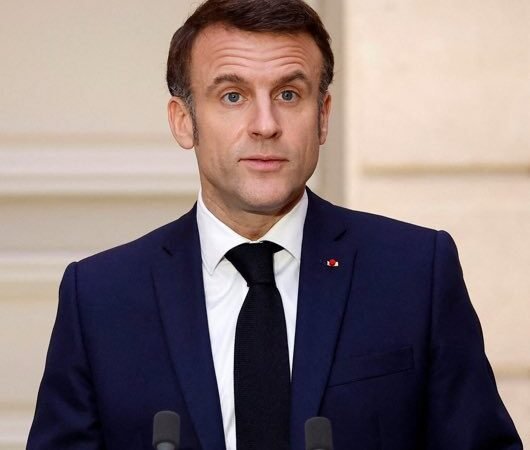In a landmark decision already making waves across the global political scene, France has become the first G7 nation to diplomatically recognize the State of Palestine. The move which was announced by President Emmanuel Macron will be ratified in the United Nations General Assembly in September 2025 and makes France a brave advocate for Palestinian statehood amid one of the most devastating wars in modern Middle Eastern history.
France’s recognition comes against the background of unprecedented violence and humanitarian crisis in the Gaza Strip, with over 59,000 Palestinians murdered since October 2023, according to figures by the Gaza Ministry of Health. The Israeli campaigns have wrought widespread destruction, displaced millions, and growing international calls for a ceasefire and negotiated solution after the October 2023 Hamas-led attacks.
President Macron, speaking to the Élysée Palace, referred to the step as a “moral and political responsibility”, adding that “peace cannot exist without justice, and justice begins with recognition.” He emphasized that the move is not being undertaken against Israel, but in the interest of peace, and is within the framework of France’s long-standing commitment to a two-state solution guaranteeing both Israelis and Palestinians the right to sovereignty, security, and dignity.
While over 140 members of the UN have in some form recognized Palestine, none of the world’s leading industrial democracies had yet followed suit until now. France’s move is thus deeply symbolic. It departs from traditional Western restraint on granting Palestine formal state recognition ahead of a negotiated peace settlement.
France’s recognition could have a domino impact among other Western and European nations. Several EU members among them Spain, Ireland, Belgium, and Slovenia have already indicated publicly that they wish to follow suit, especially with the public pressure still mounting as Gaza’s humanitarian toll rises.
French Foreign Minister Stéphane Séjourné further said the step followed months of diplomatic consultations with Arab countries, European allies, and Israeli and Palestinian officials. “This is not symbolic,” he said. “It’s a shift in how we seek peace in the Middle East.”
The move was met with celebration and relief in the Palestinian territories. President of the Palestinian Authority Mahmoud Abbas hailed the move calling it a historic decision that reaffirms our right to self determination and international legitimacy.
Hamas, while skeptical of Western motives also acknowledged the significance of French recognition, stating that it must be pursued with concrete actions, including sanctions on Israel and support for Palestinian reconstruction and statecraft.
Across the occupied West Bank and in diaspora communities, Palestinians protested and held vigils, waving Palestinian and French flags. On social media, #MerciLaFrance and #FranceRecognizesPalestine soon began trending.
Unsurprisingly, the Israeli government condemned the move, claiming it would damage bilateral relations and embolden extremist groups. Israeli Prime Minister Yair Lapid called the recognition a “reward for terrorism”, adding that Macron was undermining efforts to restart peace negotiations.
Israel’s foreign ministry summoned the French ambassador to Tel Aviv for a formal rebuke and recalled its own ambassador in Paris for consultations. “France has chosen a path that does not promote peace, but empowers separation,” Israeli officials stated jointly.
The Israeli opposition was more equivocal in its response, though, with some commentators acknowledging that continued settlement expansion and the failure to achieve a viable political resolution have contributed to global frustration.
France’s recognition of Palestine would be a game changer in the Israeli-Palestinian conflict, at least on the international diplomatic front. While recognition doesn’t change facts on the ground it increases pressure on Israel to return to negotiations and forces the international community to confront the injustice of occupation and statelessness.
It also shatters the traditional model of peace talks, which have typically been U.S.-mediated, as seen by many as too skewed in the interests of Israel. By assuming a leadership position, France is perhaps contributing to the creation of a new multilateral process one with international law and human rights at its foundation.
All eyes will be on the UN General Assembly in September 2025, when France will most probably present a resolution calling for full Palestinian membership in the UN and recognition of its 1967 borders with East Jerusalem as its capital.
The international community has now an existential question to answer: Will other Western nations follow France’s lead, or still await a peace process stalled for decades?
In any event, France has sent a strong message that the status quo is no longer acceptable, and that peace in the Holy Land must begin with equal rights, recognition and respect for both peoples.
France Becomes First G7 Nation to Recognize Palestine as a State Ahead of UN General Assembly



